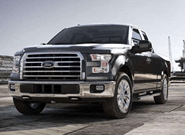Analysis

January 3, 2020
U.S. Auto Sales Expected to Top 17 Million for a Fifth Year
Written by Sandy Williams
Edmunds analysts estimate auto sales will top 4.3 million in the fourth quarter of 2019, pushing the total for the year to 17.1 million and the fifth year in a row above the 17 million mark.
“The fact that new car sales have stayed this strong for this long really defies the odds, especially given that high interest rates and record prices squeezed buyers this year,” said Jeremy Acevedo, Edmunds senior manager of industry insights. “But if 2019 taught us anything, it’s that you can’t underestimate the power of a strong economy.”
Fourth-quarter sales were impacted by the General Motors strike that reduced production by 300,000 vehicles and quarterly sales by approximately 1 percent. About 4 million vehicles were sold in the first quarter, followed by 4.4. million in Q2 and 4.3 million in Q3.
General Motors reports sales decreased 6.3 percent in the fourth quarter to 735,909 units. FCA sales for the quarter were down 2.0 percent to 542,591 vehicles. Ford plans to release fourth-quarter sales results on Monday, Jan. 6.
“We have read the expectations that sales may slow a bit in 2020,” said Reid Bigland, head of U.S. sales at FCA. “However, we believe there is still plenty of demand in the market and we are ready for a new year.”
Toyota Motor North American reported December 2019 sales of 207,373 vehicles, a 1.8 percent decline from a year ago. Total sales for the year were 2.39 million, a 1.8 percent decrease from 2018. Honda sales plunged 12 percent in December but were 0.2 percent higher for the year. Nissan’s December sales plummeted 29.5 percent in December and were down 9.9 percent for the year.
Edmunds is predicting another year above 17 million for the industry in 2020, but the Cox Automotive forecast is somewhat softer. Cox points to a fourth-quarter dip in consumer spending and an increase in non-housing consumer debt in 2019, which could impact auto sales in the coming year.
“Collectively, these trends suggest that the consumer may not be capable of single-handedly carrying the economy in 2020, which is why we are expecting another decline in new-vehicle sales,” said Cox Automotive Chief Economist Jonathan Smoke.






